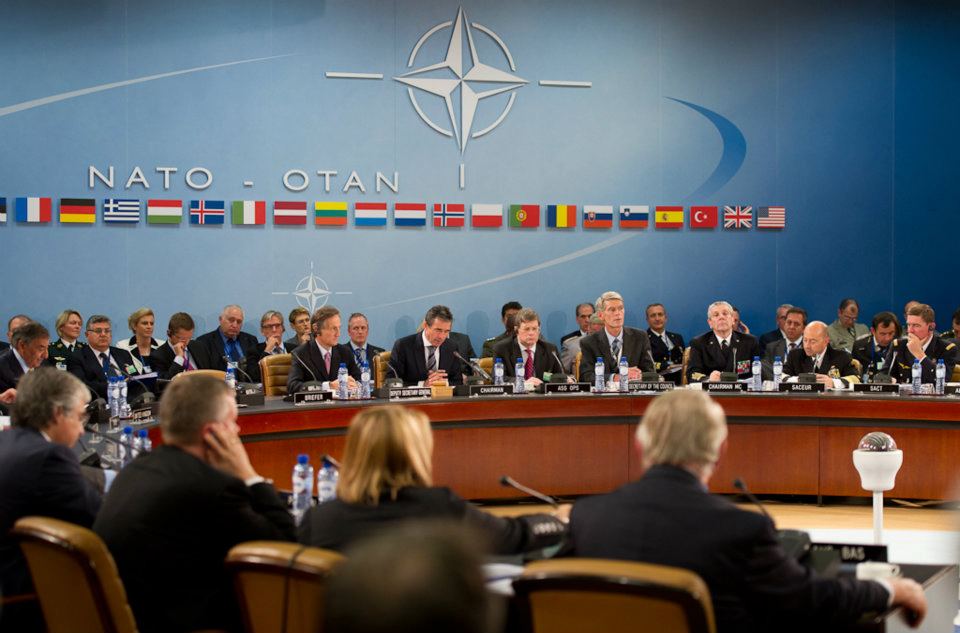Unrealistic Views of NATO
Stephen M. Walt’s recent piece praising realists highlighted their valuable prudence in a gloomy world based on a competition for power. Yet, he incorrectly made the repeated assertion that NATO expansion is partially culpable for Russian aggression.
May 2, 2014 -
Ian Hansen
-
Articles and Commentary

Photo: NATO (CC) http://bihnato.com/bih-u-nato/operacije-podrske-miru/isaf/
This theoretically sound conclusion fails to acknowledge that NATO expansion has actually ensured greater security against inevitable Russian aggression by consistently filling vacuums of power. The truth remains NATO is a worthwhile Euro-Atlantic tool to make Europe whole, free and at peace.
Realists must first accept that since the end of the Cold War, they have consistently misjudged NATO. Theyargued that without the Soviet Union, the alliance would have dissolved or become irrelevant. It has instead flourished – and not just with the significant 11-year ISAF mission in Afghanistan. NATO conducts counter-piracy operations in the Gulf of Aden, operates an anti-terrorist mission in the Mediterranean, and provides direct support in the Balkans and Africa. All of these patently display the alliance filling voids in international security.
Realists may then explain NATO’s evolution and continuing presence as bureaucratic inertia. The danger and fear remains, as Walt arguedin 1998, that “NATO will be dead before anyone notices and we will only discover the corpse the moment we want it to rise and respond.”
In other words, as NATO has been hollowed out by years of defence spending cuts, widening transatlantic differences, and needless overexpansion, it cannot adequately respond to genuine crises. Such a crisis will supposedly emerge as Russia infuriatingly responds to NATO encroaching on its core interests to the detriment of greater global issues i.e. the Iranian nuclear programme.
The major problem with this argument is not just Vladimir Putin’s global pragmatism – it is also his unwillingness to directly confront NATO which demonstrates the alliance’s existing strength vis-à-vis Russia.
Russia under Vladimir Putin has used “force” in voids where NATO was not committed to respond. Notable examples include the 2007 cyber-attack in Estonia, continuing energy coercion, the annexation of Crimea and now the mercenary “pro-Russian” militias aided by ceaseless propaganda campaigns and covert operations in eastern Ukraine. These are all acts of aggression, but are ambiguous to, or clearly outside of, the scope of NATO’s Article Five.
Another example counterfactually given is the war in Georgia in 2008. Theoretically, by withholding membership, NATO avoided public exhibiting its “corpse” as unwilling or unable to defend Tbilisi. On the contrary, the failure to give Georgia a Membership Action Plan (MAP) in 2008 gave Russia impetus to invade before a future agreement came to fruition.
In essence, NATO’s clear guarantee has remained a deterrent to Putin thus far. This suggests Putin’s calculations on using Russian power stem from measuring opportunity costs. Thus, events like the Ukraine crisis are less likely to occur if NATO unwaveringly and vigorously fills the vacuums of power between Russia and Europe.
All of this leads to a few interconnected takeaways.
NATO must rapidly increase its presence in its eastern European states to create a more robust front. However, it should avoid automatically offering countries like Ukraine or Georgia MAPs. These decisions ought to be made carefully and with the unanimity of countries that are willing to meet spending requirements and genuinely committed to NATO collective defence.
In that vein, more than four of 28 countries should be induced to meet the 2.0 per cent spending target. In general, defence must be taken much more seriously to protect the alliance’s more vulnerable allies.
The alliance should also seek to evolve its expertise into security voids where it can respond to new types of “force.” Establishing cyber and energy centres of excellence in Estonia and Lithuania are encouraging first steps. The ability to rapidly share intelligence and skills on how to counter professional militias would be additional steps.
The final critical takeaway is that realists should appreciate that NATO’s future remains brighter than Putin’s Russia. It is increasingly evident that Russia’s external aggression stems from a desire to cloak the systemic internal weaknesses Putin’s governance creates. As Lilia Shevtsova recently wrote, “the Kremlin’s Ukrainian campaign is thus apre-emptive strategywith the ultimate goals of reproducing and preventing any threats to the personalised power system in Russia and the post-Soviet space.”
This matters since a strong NATO remains both the best tool to halt future aggression, but also as a bulwark against the promulgation of Putin’s global view. In 1998, George Kennan argued against NATO expansion saying “Russia’s democracy is as far advanced, if not farther” than countries like Poland, Hungary and the Czech Republic. In retrospect, those NATO members are now equitable partners with enshrined rights for which people on the Maidan in Kyiv died. That same Maidan may foreshadow the death knell for Putinism.
Therefore, instead of chastising NATO’s expansion, realists perennially concerned over a rising China may even wish to remember that a European Moscow would be a far better partner than the current Kremlin.
Ian Hansen is a program assistant with the Atlantic Council. He has worked and lived in Poland, Georgia and Ukraine. You can follow him on Twitter @CEE_theworld.

































